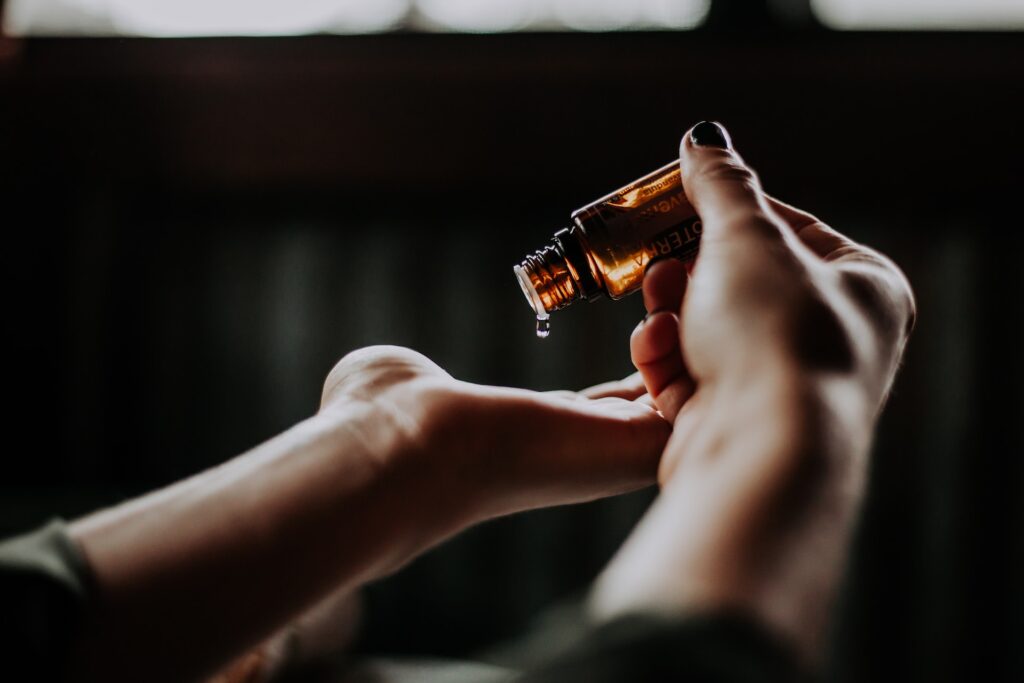
Body + Mind is reader-supported. We may earn an affiliate commission when you buy through some of the links on our site.
There are hundreds of diets and exercises out there promising to give you a better life — but have you heard of Ayurvedic medicine? Rooted in ancient medicinal practices, this lifestyle delivers optimal well-being. Here is a breakdown of how the dosha imbalances negatively affect your mind and body and what Ayurveda health tips you can adopt to recreate positive energy.
Ayurveda is a 3,000-year-old natural medicinal system from India. In Sanskrit, “ayur” means life, while “Veda” means knowledge. Essentially, Ayurveda concentrates on imbalances and stress in a person’s consciousness. Natural interventions and therapies help you regain balance using universal connectedness — starting with a bodily detox, including a unique diet, herbs, massages, yoga, and nature experiences.
This system of medicine believes the world is made up of five elements — space, water, fire, earth, and air. Each of these elements is combined to make up three primary doshas — Vata, Pitta, and Kapha. Ayurvedic practitioners say the doshas dictate a person’s traits and physical, emotional, and mental health.
When your primary dosha is imbalanced, it usually means you are unwell. An Ayurvedic practitioner can help you determine your dosha. Then, you can correct this imbalance by adopting the Ayurvedic principles for your dosha specifically.
People interested in adopting alternative medicine to improve their well-being might consider an Ayurvedic lifestyle. These seven Ayurveda health tips will help you make this holistic practice part of your daily routine.
Ayurvedic traditions teach mornings are among the most spiritually-charged times of the day. Waking up as the sun rises allows you to connect with the light, meditate, do breathing exercises and jumpstart other Ayurvedic practices.
According to Sadhguru, yoga practitioner and founder of the Isha Foundation, the best time to wake up is during Brahma Muhurta — between 3:30 and 5:30 a.m. or whenever the sun rises near you. During Brahma Muhurta, the human body undergoes unique physiological changes, including the balance of melatonin production — a mood stabilizer.
Before you leave your bed for the day, put your hands over your heart chakra and say a little prayer for protection, compassion, joy, peace, and healing.

Yoga and meditation are a cornerstone of the Ayurveda lifestyle. Although Ayurveda extensively focuses on identifying and correcting physical imbalances in the body, yoga and meditation help balance one’s emotional state and inner peace.
Yoga poses improve your flexibility, promote stronger muscles, and boost circulation. Likewise, meditation will reduce your stress and blood pressure, encourage better sleep habits, and induce physical and mental healing.
Overall, a yoga and meditation practice allows you to achieve mental clarity, awareness and a sense of peace — an overarching goal of Ayurveda.
One of the most critical Ayurveda health tips is to eat a nourishing, balancing diet for your dosha. The Ayurvedic diet bridges the body and mind by promoting more foods aligned with your primary dosha.
For example, because Pitta doshas tend to suffer from indigestion, heart disease, and hot flashes, consuming more cooling and invigorating foods with limited spices, seeds and nuts is best. Likewise, Vatas should eat warm, cooked, moist foods instead of raw, bitter, or dried ones, limiting heavy, fatty foods for the Kapha dosha.
All doshas should avoid red meat, sugar, artificial ingredients, and processed foods, opting for natural, whole ingredients instead.
Triphala is a gentle Ayurvedic laxative for cleansing the body and increasing antioxidants. You may be able to find the ingredients for Triphala — amla, bibhitaki, and haritaki — at health food stores. Otherwise, you can buy premixed Triphala powder online for easy preparation.
It is best to use Triphala powder for four to six weeks for the herbs to penetrate your tissues. Mix the recommended amount in a glass of warm water daily, starting with the smallest dose and increasing it incrementally.
Use a Triphala cleanse if you feel drowsy and sluggish. You’ll reap more benefits if you eat a fibrous diet and avoid sugar, flour, and alcohol. Of course, you can expect some diarrhea and headaches until your body adjusts. However, you’ll feel your best after a couple of days.

Self-massage is called “Abhyanga” in Ayurvedic medicine and comprises rubbing and kneading the body with warm oil. Abhyanga aids the restoration of your doshas and promotes well-being, especially for Vata imbalances.
According to the Chopra Foundation, an Ayurvedic massage is usually performed for 15–20 minutes — the frequency and oil depends on your primary dosha as follows:
There are numerous physical and emotional benefits of Abhyanga, including a calmer nervous system and better sleep. Self-massage also loosens the joints, increases circulation, drains the lymphatic system, and helps eliminate toxins in the body.
In Ayurveda, a person’s energy is in balance with the five elements of nature. As such, outdoor experiences and your connection with Mother Earth are critical for your health and healing.
Consider how the environment governs the doshas: Space and air make up Vata, fire and water make up Pitta, and water and earth account for Kapha. Therefore, getting outside daily strengthens one’s symbiotic relationship with nature and relieves you of stress and worry.
Many studies show a correlation between nature and health, including increased cognitive function, lower blood pressure, improved immunity, and better post-operative healing. Researchers also believe we activate over 30 senses when we spend time outside in natural spaces, allowing us to let go of the past, become more present, and create stability.

Imbalanced doshas can negatively affect sleep either by sleeping too much or dealing with bouts of insomnia. Typically, Vata and Pitta doshas suffer from sleep disturbances, while Kapha dosha sleeps excessively.
If your primary dosha is Vata, you could use about eight to nine hours of sleep at night. Often, a routine, self-massage, warm pajamas, and a weighted blanket can aid restfulness. Pitta needs about seven to eight hours of sleep, preferably starting around 10:00 p.m. Those with a Pitta dosha should avoid spicy or rich foods at night, use aromatherapy to relax, and opt for breathable sheets to stay cool.
Kaphas are deeper sleepers and require only six to seven hours. You can tell if you have a Kapha sleep imbalance if you feel fatigued even after a good night’s sleep, sleep too long, or struggle with obesity and metabolic conditions. If so, try vigorous exercise, Abhyanga, and a modified diet.
Any lifestyle change is an adjustment. However, the Ayurvedic medicinal system will undoubtedly change your life. Practice these Ayurvedic health tips to achieve optimal well-being for the rest of your life.
Your email address will only be used to send you our newsletter, and at any time you may unsubscribe. For more information, see our Privacy Policy.